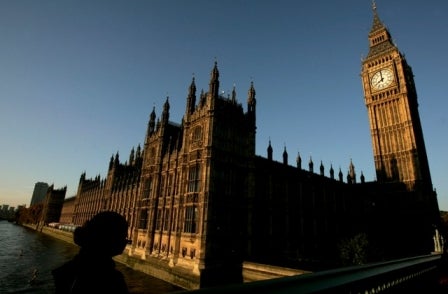
If a journalist was secretly filmed suggesting they would take money to use their influence to get stories in the paper they would get drummed out of the profession.
They would probably also be sent to prison for committing an offence under the Bribery Act.
Yet when reporters expose MPs keen to take thousands from foreign special interests, the MPs are exonerated and Parliament’s watchdog accuses the media of unfairly tarnishing their reputations.
There is a simple way MPs such as Jack Straw and Malcolm Rifkind could have avoided having their names being linked to a ‘cash for access’ scandal.
When faced with a couple of undercover journalists in a hotel room with a hidden camera behind a pot plant posing as lobbyists for a Chinese company they could have simply declined their offer. Instead of boasting about their influence and informing them of their rates (around £5,000 a day apparently) – they could have told them where to stick their attempts to bypass the democratic process.
They are well paid by the Government and will have ample opportunity after Parliament to earn an honest crust.
At least 65 journalists have been arrested in the UK over the last four years in connection with allegations of phone-hacking, computer-hacking and paying public officials for stories. Some have been found guilty. But none of them were accused of taking money themselves.
Plenty of journalists play the expenses system to supplement their modest salaries. But I have never heard of a journalist taking cash from outside special interests.
Local newspaper journalists earning £18,000 a year would not dream of acting the way Straw and Rifkind did on company time (and using company resources in the case of Straw).
Rifkind said he could arrange "useful access" to UK ambassadors and Straw talked of operating "under the radar" to use his influence to change European Union rules on behalf of a commodity firm which paid him £60,000 a year.
Any journalist on an MP’s salary of £67,000 a year would be grateful to be among the highest earners in their profession.
It is unthinkable that they would jeopardise that by taking paid advocacy from those who would seek to influence the policy of their employer
But that is exactly what many MPs do.
The report of Parliamentary Commissioner for Standards Kathryn Hudson concluded: "It must also concern all those who value the reputations of the House and of its members generally that those reputations proved so easy to tarnish. For the truth was that in this situation, there was no breach of the rules on paid lobbying, although it is clear that many people thought that there had been."
To me this reads like a veiled threat and a hint and that some inside Parliament would like greater protection for their reputations and hence greater controls on press freedom.
With this in mind it is easy to see why the prospect of press regulation backed by a Royal Charter which was agreed by MPs is so abhorrent to much of the press.
Email pged@pressgazette.co.uk to point out mistakes, provide story tips or send in a letter for publication on our "Letters Page" blog
